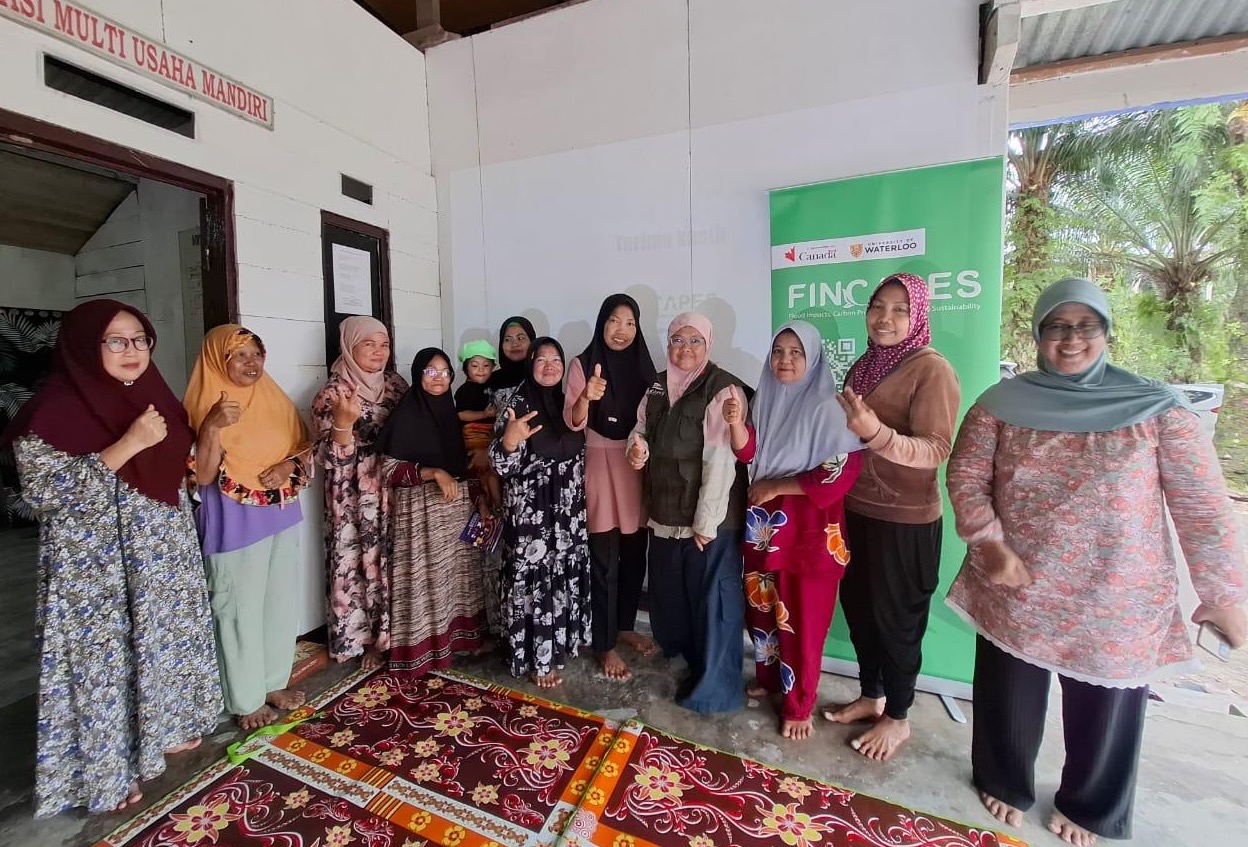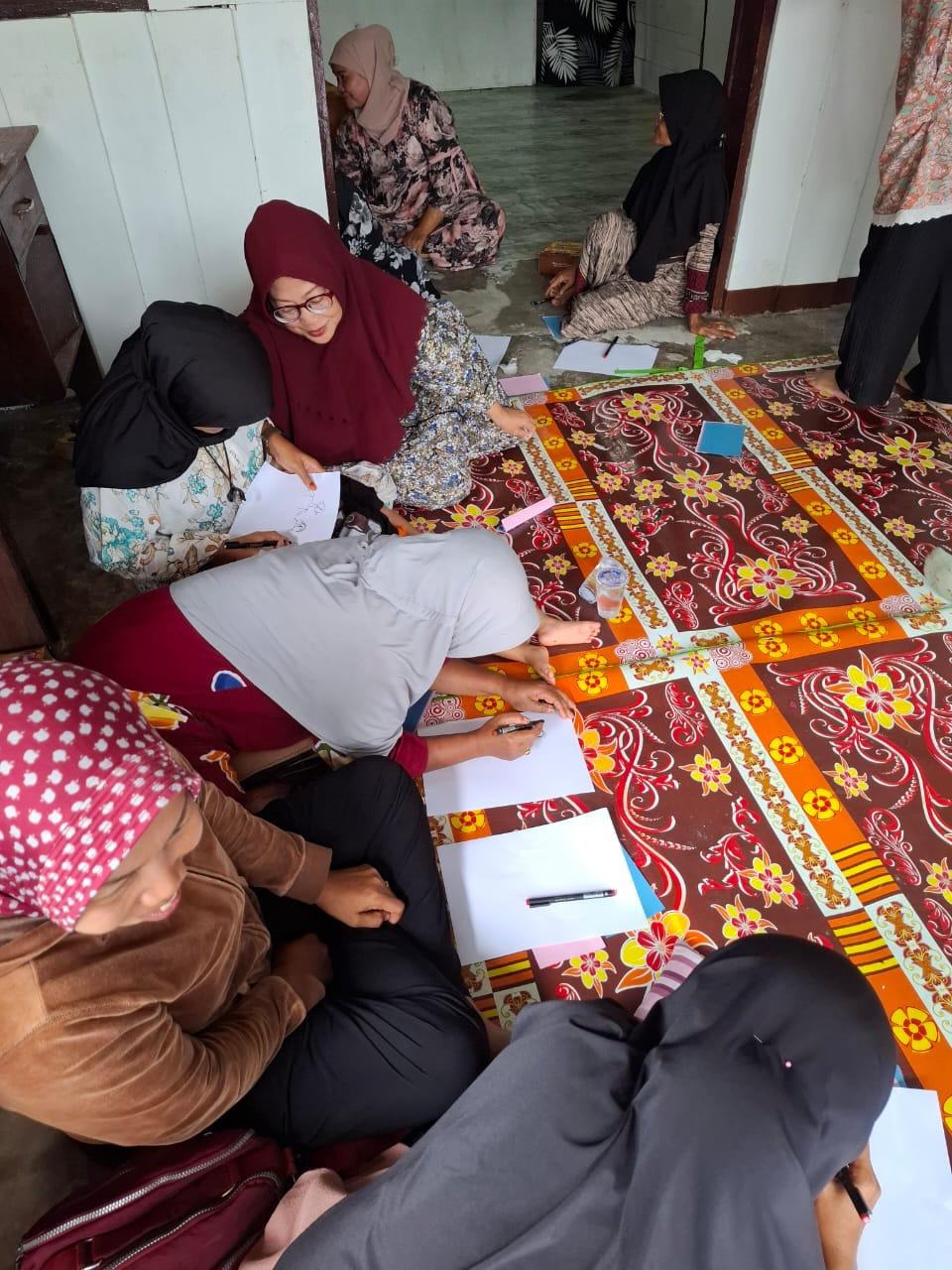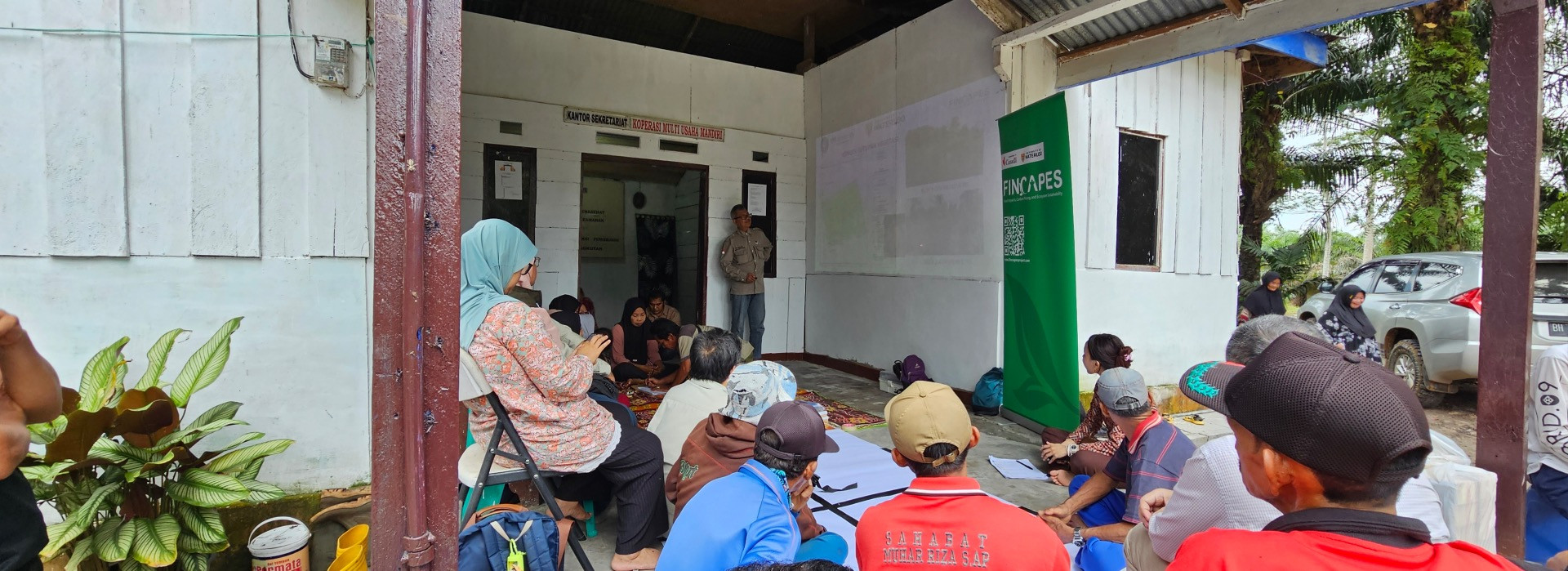Women's rights are Human Rights: Empowering Women in Peatland Restoration
International Women’s Day 2025 marks another milestone in the fight for gender equality under the theme “Women’s Rights Are Human Rights.” Across the world, voices unite to demand equal opportunities, recognition, and participation in decision-making. This year, FINCAPES is proud to stand alongside women in rural Jambi, ensuring that their rights are realized through inclusive peatland restoration efforts.
Breaking Barriers: Women in Peatland Restoration
In many Indonesian villages, women take on domestic responsibilities that are heavily influenced by the health of their surrounding environment—securing water, managing household finances, and caring for children. However, traditional cultural norms have historically kept them out of land-use planning and environmental policymaking. This exclusion not only denies women their rightful voice but also weakens restoration success by overlooking valuable local knowledge and expertise. Sustainable peatland restoration must be a shared responsibility, with both women and men contributing their insights and skills to protect these ecosystems for future generations.
FINCAPES' inclusive restoration initiatives address this disparity, recognizing that empowering women is not just equitable, but essential for effective conservation. Studies[1] have shown that when women take leadership roles in environmental action, resource management improves, conservation efforts yield better results, and communities become more resilient to climate threats. Women’s firsthand experience in managing natural resources offers unique perspectives on sustainable land use, making their involvement essential at every stage of restoration planning and implementation. When women are empowered, communities and ecosystems thrive together.

On February 19, 2025, 35 community members, including 14 women and 21 men, gathered in Sungai Gelam, Jambi, to take part in the Gender Equality & Social Economy Inclusion (GESEI) training. The training was designed to highlight the importance of women's participation in peatland restoration decision-making. While women have long contributed to planting, harvesting, and processing crops like pineapples and areca nuts, their role in shaping restoration strategies is equally essential. The GESEI training in Sungai Gelam served as an important step toward empowering women to raise their voices, express their concerns, and participate in shaping the future of their environment. Through this training, participants explored how gender-inclusive approaches can lead to more sustainable and equitable restoration efforts.
Empowering Women Through Knowledge and Confidence
The training was designed to increase awareness about gender roles in family, society, and peatland restoration efforts. Led by FINCAPES GESI Expert Dr. Sri Mastuti and IPB University's Dr. Ir. Leti Sundawati M.Sc. explored key topics: gender roles in households and communities, the effects of gender inequality on peatland restoration, and the role of effective communication in combating gender injustice.

For many participants, this was their first time discussing gender issues in a structured setting. A key takeaway was that communication is a powerful tool to challenge inequality. Women and men alike recognized that sustainable restoration efforts must balance economic and ecological benefits. Women expressed the need for short-term crops like pineapples, which provide faster financial returns, whereas men leaned toward long-term timber trees. These discussions highlighted the need for collaborative decision-making in restoration planning.
One of the most powerful moments of the training came when a female participant, who initially felt insecure and excluded, gradually gained confidence to participate actively. This transformation reflected the importance of creating safe spaces for women to express themselves. By the end of the session, she shared her personal experiences and acknowledged that the training gave her newfound knowledge and confidence.
For the community as a whole, the training emphasized that gender equality strengthens social harmony. Despite coming from diverse ethnic backgrounds—Bugis, Javanese, Balinese, and more—participants expressed a shared aspiration for a prosperous and harmonious community. They agreed that peatland restoration must not only protect the environment but also support community well-being and livelihoods.
Towards Inclusive Peatland Restoration
The GESEI training reinforced the importance of ensuring women’s involvement in restoration initiatives. Moving forward, FINCAPES will continue to observe how women’s participation evolves, particularly in decision-making and leadership roles. This International Women’s Day, FINCAPES celebrates the resilience, contributions, and leadership of women in rural Jambi, and supports to creating more and more opportunities for women in environmental conservation.
